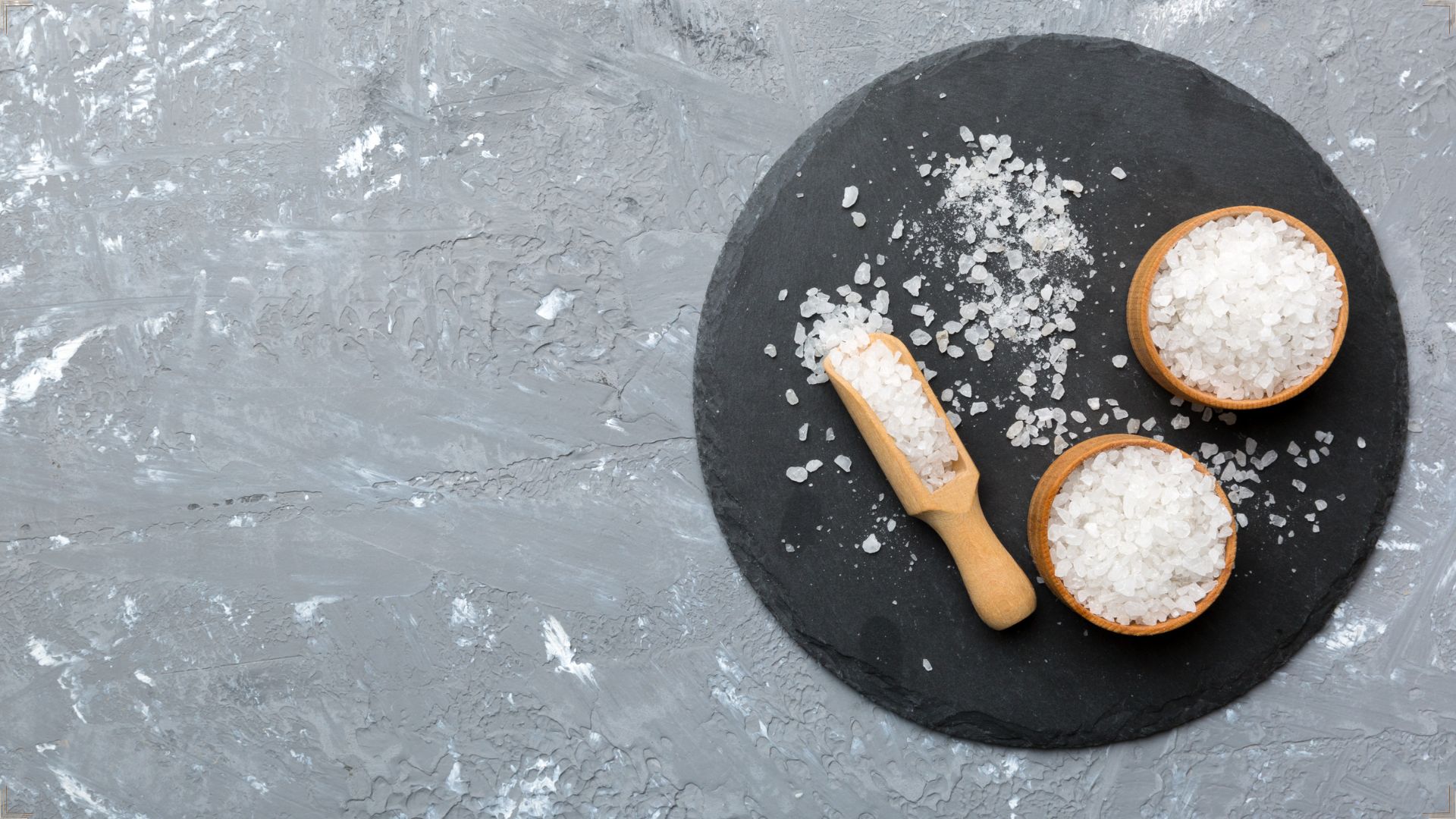Is Epsom Salt Edible?
Epsom salt is an incredibly versatile substance that has been used for centuries in many different applications. Although most people may not have heard of it, epsom salt can be found in a variety of products from baths and skin care to gardeners’ supplies. But are you wondering if epsom salt is edible? Are you wondering if epsom salt is edible or possible to consume? Are you looking for ways to improve your health and wellbeing through natural means? Epsom salt has long been touted as one of the most beneficial products for overall wellness and comfort, so it’s understandable why people might be interested in using it as a dietary supplement.
In this blog post, we will explore the potential benefits and risks associated with eating epsom salt so that you can make an informed decision about what works best for your individual needs. Keep reading to learn more about the benefits and potential risks associated with consuming this versatile mineral!!

What is epsom salt?
Epsom salt is a mineral compound comprised of magnesium sulfate. It has been used for centuries as a healing treatment and home remedy to treat a variety of ailments from aches and pains, constipation, skin problems, colds and flu to foot care. Epsom salt can be found in pharmacies or health food stores, making it an easy item to purchase for use at home.
Epsom salt is also known for its many uses around the house. It can be used as an exfoliator when combined with warm water and soap or baking soda. When dissolved in hot water, Epsom salt acts as a powerful cleanser that draws out impurities from pores and helps clear away dead skin cells. Adding Epsom salt to a warm bath can also help to soothe sore muscles, reduce stress, and improve circulation.
In the garden, Epsom salt acts as a natural fertilizer for plants due to its high magnesium content. Sprinkling a small amount around each plant helps increase nutrient absorption and encourages lush growth. Epsom salt can also be used to control weeds because it prevents new seedlings from germinating in the soil. To finish off your gardening chores, use Epsom salt as a spray to eliminate slugs and snails that are damaging your plants.
As you can see, epsom salt is an incredibly versatile mineral with numerous uses both inside and outside of the home.
Why is Epsom salt known by that name?
The name comes from the town of Epsom in England, where the mineral was first discovered and mined. Although it is not actually a salt, its properties make it an ideal option for helping heal different ailments and improve your overall health. It’s now sold all over the world and used for a variety of applications.
So next time you’re looking for a natural solution to some of your common ailments or chores around the house, consider using epsom salt – the versatile mineral with many uses.
Note: This is not professional advice and should only be taken as general information. Please consult with your physician or healthcare provider before taking any supplement for medical purposes.
How does epsom salt work?
Epsom salt works by drawing toxins out of the body through the skin and helping to reduce inflammation. It can be used to ease pain, soothe sore muscles, increase circulation, treat constipation, and promote relaxation. Additionally, Epsom salt helps create a natural balance in your body’s pH levels and minerals that encourages healthy cellular function.
Finally, Epsom salt is also great for beauty treatments such as foot soaking or bath bathing. When added to warm water it helps soften skin, remove dead cells, nourish hair follicles, and gives you a beautiful glow.
When using epsom salt at home always remember to use it with caution as too much can cause irritation. Also be sure to read all instructions carefully before use.
Epsom salt is a great home remedy and an essential item to have in your home. With its many uses, it’s easy to see why this mineral has been used for centuries.
Is epsom salt edible?
Not exactly no, epsom salt is not considered edible and should not be ingested. While it has been used as a laxative in small doses, this practice is no longer recommended due to the potential for complications associated with overuse. Ingesting large amounts of epsom salt can lead to nausea, vomiting, abdominal pain and diarrhea. Additionally, long-term use of epsom salt can cause magnesium toxicity which can result in confusion, difficulty breathing and even coma. Therefore, it is best to avoid ingesting large quantities of Epsom salt.
If you would like to add a mineral supplement to your diet or increase your intake of magnesium sulfate then consider taking an oral supplement instead of consuming large amounts of Epsom salt.
Epsom salts, on the other hand, can be consumed as a laxative or as a supplement for magnesium. It is important to consult with your doctor or pharmacist for the recommended dose, as taking too much can cause an electrolyte imbalance in the body. It is also not advised to take epsom salt if you have kidney disease, high blood pressure, or any heart conditions.
It’s also important to note that Epsom salt should never be used on open wounds and should not be applied directly to the skin unless specifically directed by a healthcare provider. If you do decide to use it topically then dilute it first in warm water before applying to avoid irritation.
What are some of the health benefits of epsom salt?
Many people, including some medical experts, advocate the therapeutic use of Epsom salt as a non-traditional remedy for a number of ailments.
1) Epsom salts will provide magnesium:
The body has four times as much magnesium as calcium, which is the first mineral. More than 300 metabolic processes that are beneficial to your heart and neurological system include it. Yet, a lot of individuals do not get enough magnesium.
While magnesium sulfate may serve as a magnesium supplement, some individuals contend that Epsom salt baths may provide higher absorption of magnesium than oral intake.
This assertion, however, is unsupported by any known data, and studies have shown that magnesium sulfate, even when taken orally, is extremely little absorbed.
This theory’s proponents cite an unpublished research of 19 healthy individuals. All but three of the subjects, according to the researchers, had greater blood levels of magnesium following an Epsom salt bath.
Nevertheless, no statistical analyses were done, and there was no control group in the trial. Several research that looked at how Epsom salt baths affected blood levels of magnesium had inconsistent findings and were of doubtful quality.
Hence, more extensive, high-quality investigations are required even if it may be feasible for magnesium to be received via the skin.
2) Epsom salt will promote sleep and reduce stress:
Having trouble sleeping is quite common. Tension and stress are two of the most common causes of sleep complications, according to some studies. Epsom salt baths don’t seem to help people fall asleep quicker but they may aid in better relaxation so that you can reach a deeper state of rest more easily.
3) Epsom salt might ease pain and reduce inflammation:
One study using laboratory rats showed that magnesium sulfate could reduce inflammation caused by muscle fatigue or injuries in the neck muscles. Another study conducted on humans suggested that taking an Epsom salt bath with added essential oils (such as lavender) for 10 minutes twice a week was effective at reducing pain associated with fibromyalgia, which is a chronic musculoskeletal condition causing widespread pain and fatigue.
4) Epsom salt may ease skin problems:
Epsom salt can be useful in treating some skin conditions, according to some sources. It is often added to bathwater or made into a paste to treat minor cuts, burns, eczema and other skin irritations. Furthermore, it may help increase the amount of moisture in your skin as well as reduce itching associated with certain rashes or allergic reactions.
5) Epsom salt will help with constipation:
Epsom salt is sometimes used to help alleviate constipation due to its laxative qualities. Magnesium sulfate draws water into the intestines, which can encourage bowel movement. Therefore, taking an Epsom salt bath or soaking your feet in it can be beneficial for those suffering from chronic constipation.
6) Epsom salt will help perform exercise and help recovery:
Muscle aches and soreness are common after a workout. Epsom salt baths may help reduce inflammation, allowing your muscles to relax, heal faster, and ease pain. It has been found that taking an Epsom salt bath after physical activity can be beneficial in reducing muscle fatigue and improving performance.
While there is limited research on the benefits of Epsom salt, many people still believe it can provide a number of health benefits such as reducing stress and promoting sleep. Additionally, it’s thought to help with skin issues, constipation, and muscle recovery following exercise. However, more extensive studies are needed to support these claims before any definite conclusions can be made about the potential health benefits of Epsom salts. Before using epsom salts for health benefits, it’s important to talk to a healthcare professional first. They can provide advice on the best way to take Epsom salt and provide any other relevant information.
Is epsom salt safe to eat?
No, epsom salt is not safe to eat. Epsom salt is made of magnesium sulfate, which has a laxative effect when ingested in large amounts. The amount needed for this purpose far exceeds the amount found in a typical bath. Large doses can be dangerous and may even lead to symptoms such as nausea, vomiting, diarrhea, abdominal pain, dehydration, and in some cases may even lead to more serious issues such as dehydration or electrolyte imbalances. It’s important to note that Epsom salt should never be ingested unless specifically instructed by a doctor or other healthcare professional. If you have any questions about whether it’s safe to consume Epsom salt, speak with your doctor before doing so.
How to eat epsom salt?
Epsom salt should not be consumed orally unless specifically instructed by a doctor or other healthcare professional. If you are instructed to take Epsom salt for medical purposes, it is best taken as part of an oral solution, such as 1 teaspoon of Epsom salts dissolved in 8 ounces of water. It should be sipped slowly over several minutes and not all at once. If you experience any discomfort or adverse reactions after taking the solution, stop using it immediately and consult your doctor.
It is important to note that Epsom salt should never be used as a substitute for prescribed medication. Additionally, pregnant women and those with certain medical conditions (such as kidney disease) should speak with their doctor before taking Epsom salt in any form.
What are some of the side effects when ingesting epsom salt?
When ingested, the side effects of Epsom salt can be quite severe.
Some of the most common side effects include nausea, vomiting, diarrhea, abdominal pain, and dehydration. In more serious cases, it may even lead to electrolyte imbalances or other life-threatening conditions.
Additionally, taking too much Epsom salt in one sitting can cause an overdose. If you experience any of these symptoms after ingesting Epsom salt, contact your doctor immediately for further advice.
Be sure to drink lots of water when using it as a laxative as this may help to ease any intestinal pain. Also, never exceed the dosage without first speaking with a doctor.
Magnesium overdose can occasionally result in cardiac issues, mental impairment, and even death. As long as you take it as directed by a doctor or on the label, this is unlikely to happen.
It is important to note that pregnant women and those with certain medical conditions (such as kidney disease) should speak with their doctor before taking Epsom salt in any form. As always with any supplement or medicine, it’s best to consult a doctor before using it.
FAQs
How do I use epsom salt?
So, how do you use epsom salt in daily life? Here are some of the common ways to use epsom salt.
1) Using epsom salt for bath:
Adding the epsom salt in warm water creates an excellent bath solution. This helps to relax your muscles, soothe aching joints and reduce inflammation.
2) Using it as a foot soak:
Adding two tablespoons of epsom salt in warm water can help to relax tired feet and soften calluses.
3) As a facial scrub:
Epsom salt can be used as an exfoliant for your face by mixing it with lemon juice or honey to make a paste.
4) As air freshener:
Add some drops of essential oils such as lavender or peppermint oil into the epsom salt, shake well and leave it open for a few hours before closing the lid. The smell will spread through the house making the atmosphere fresh and fragrant.
5) As a home cleaner:
Mix epsom salt with liquid dish soap to clean countertops, glass surfaces and more. The combination of salt and soap can help to remove tough stains.
6) For gardening:
Adding epsom salt in garden soil helps to boost the growth of plants by providing essential magnesium and sulfur. It is also beneficial for improving the texture of clay soils.
7) For beauty:
Epsom salt can be used topically to reduce puffiness and redness of skin. It also helps to remove toxins from your body, leaving you feeling refreshed and energized.
8) As laxative:
Mixing one teaspoon of epsom salt in a glass of water and drinking it can help to relieve constipation. It should be taken with caution since large dosages can lead to dehydration or electrolyte imbalance.
When using epsom salt for any purpose, it is important to follow the instructions carefully, as taking too much or too little can lead to adverse reactions. If in doubt, consult a doctor or healthcare professional before use. Additionally, pregnant women and those with certain medical conditions should speak with their doctor before taking Epsom salt in any form.
How is Epsom salt different from regular salt?
Epsom salt is different from regular table salt in several ways. Epsom salt has a much higher magnesium content and does not contain sodium chloride, which is found in table salt. Additionally, the texture of epsom salt is much coarser than that of regular table salt.
The benefits of using Epsom Salt are numerous. It can help to reduce muscle aches and pains, relieve constipation, detoxify the body, improve skin complexion, and improve garden soil quality just to name a few. But whatever your purpose for using it, be sure to follow the instructions carefully as taking too much or too little can lead to adverse reactions. Consult a doctor if there are any questions or concerns before use.
Is all Epsom salt affected equally?
No. Epsom salt comes in different grades, such as food grade and cosmetic grade, which are used for different purposes. Food grade epsom salt is best for consumption while cosmetic grade is better suited to be used externally. Additionally, some brands may add additional ingredients to their products which can affect the safety and effectiveness of the product, so it’s important to read labels carefully before purchasing Epsom salt.
Can pregnant ladies use Epsom salt without risk?
Pregnant women should always speak with their doctor before taking or using Epsom salt in any form. Large doses of epsom salt can cause dehydration, electrolyte imbalance and other adverse reactions which can be harmful to both mother and baby.
Is there any evidence that epsom salt baths have a long-term health effect?
Currently, there is limited evidence on the long-term effects of taking Epsom salt baths. The studies done so far primarily looked at short-term changes in blood levels of magnesium following an Epsom salt bath and are inconclusive regarding its overall benefits over time. More research is needed to better understand possible long-term effects of Epsom salt baths.
Conclusion
In conclusion, Epsom salt is a popular home remedy that may provide some benefits when used externally. It has been linked to improved sleep, pain relief, and skin health. However, more research is needed before any definite conclusions can be made about its potential health benefits. If you’re considering taking an Epsom salt bath or using it in another way, it’s important to consult your healthcare provider first. They can advise you on the appropriate usage and help ensure you don’t experience any negative side effects from using it.
References:
3 Ways to Use Epsom Salt – wikiHow
Epsom Salts: The Inconvenient Truth
I’m Vance Douglas, and I love making pizza. In fact, I love it so much that I decided to build my own oven to make it in. It’s a brick oven that I made myself, and it’s the best pizza oven you’ll ever find.
Making pizza is a passion of mine, and I’m always looking for new ways to make it even better. I’ve been making pizza for years, and I continue to learn more about the art every day. My goal is to create the perfect pizza, and I’m getting closer and closer every time.



